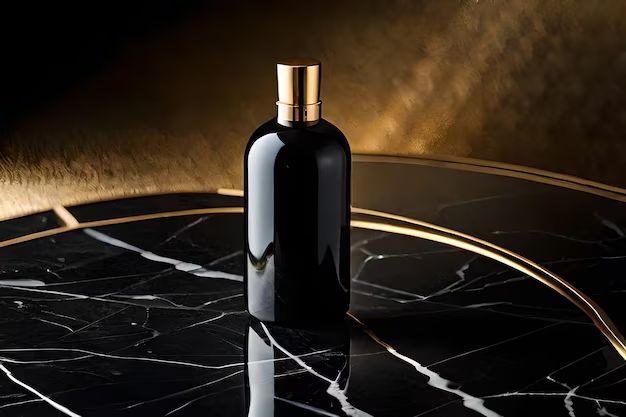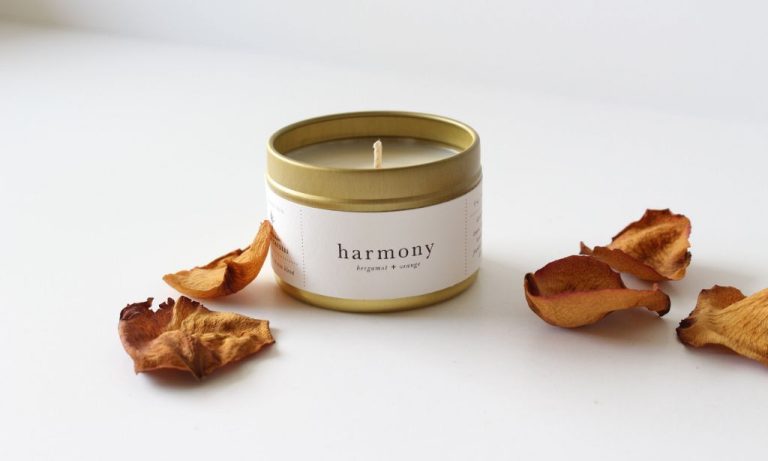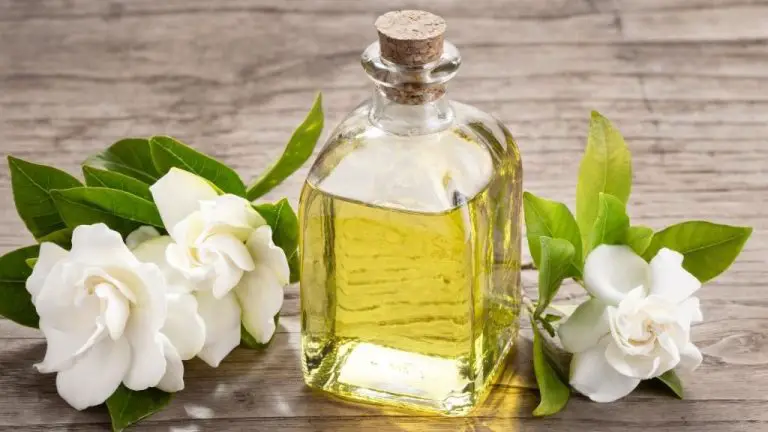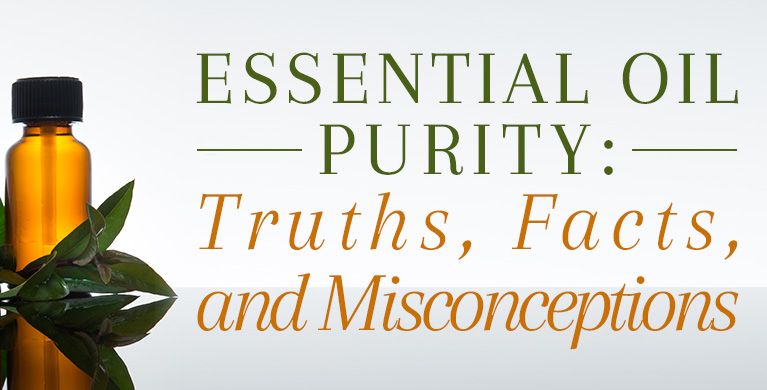Is A Eucalyptus Candle Good For You?
What Are Eucalyptus Candles?
Eucalyptus candles are scented candles that contain eucalyptus essential oil, leaves, or extracts as a primary fragrance component.
The main ingredient in eucalyptus candles is eucalyptus essential oil, which is steam distilled from the leaves of the eucalyptus plant. Eucalyptus oil has a minty, woodsy, and slightly medicinal aroma. Soy wax or other wax bases are typically used to make eucalyptus candles. Some candles may also contain dried eucalyptus leaves or eucalyptus extracts for added fragrance.
There are a few common types of eucalyptus scented candles:
- Eucalyptus Mint – A refreshing blend of eucalyptus and mint.
- Eucalyptus Lavender – Combining calming lavender with medicinal eucalyptus.
- Eucalyptus Tea Tree – Mixed with tea tree’s crisp, spa-like scent.
- Eucalyptus Lemon – Bright, citrusy lemon balances the woodsy eucalyptus.
Overall, eucalyptus candles provide an aromatic experience described as invigorating yet soothing. The natural essential oil is often used for its purported health benefits.
Purported Health Benefits
Eucalyptus candles are frequently claimed to provide various health benefits. The most commonly touted benefits are related to stress relief and relaxation, congestion and breathing issues, and antimicrobial properties.
The scent of eucalyptus is believed to have calming and soothing effects that can help reduce feelings of stress and anxiety. One study found that inhaling eucalyptol, a compound found in eucalyptus oil, significantly decreased blood pressure and levels of the stress hormone cortisol (https://www.ncbi.nlm.nih.gov/pmc/articles/PMC6612652/). The relaxing aroma of a eucalyptus candle may aid relaxation and create a Zen atmosphere for activities like meditation.
Eucalyptus is also thought to help open up sinus passages and relieve congestion. A 2012 study showed eucalyptus oil improved airflow and reduced nasal congestion (https://www.ncbi.nlm.nih.gov/pmc/articles/PMC3903967/). The vapors from a eucalyptus candle may provide similar decongestant effects when breathed in. This could help those suffering from colds, allergies, asthma or other respiratory issues breathe more easily.
Some research indicates eucalyptus has antimicrobial and germ-fighting abilities due to its high concentration of 1,8-cineole. One study showed eucalyptus oil was effective against certain antibiotic-resistant bacterial strains in a lab setting. However, more research is still needed to confirm whether eucalyptus candles could provide these antimicrobial effects when burned indoors.
Potential Downsides
While eucalyptus candles may seem harmless, there are some potential downsides to be aware of:
Allergic reactions – Eucalyptus oil can cause skin irritation, rashes, and other allergic reactions in some people, especially those with sensitive skin. According to a Safety Data Sheet from Bath & Body Works, their Eucalyptus Mint candle may cause skin sensitization or allergic reactions in sensitive individuals (source).
Respiratory irritation – Inhaling eucalyptus oil from candles can irritate the lungs and airways for some. Difficulty breathing, coughing, and chest tightness have been reported. Those with asthma or other respiratory conditions may be especially susceptible (source).
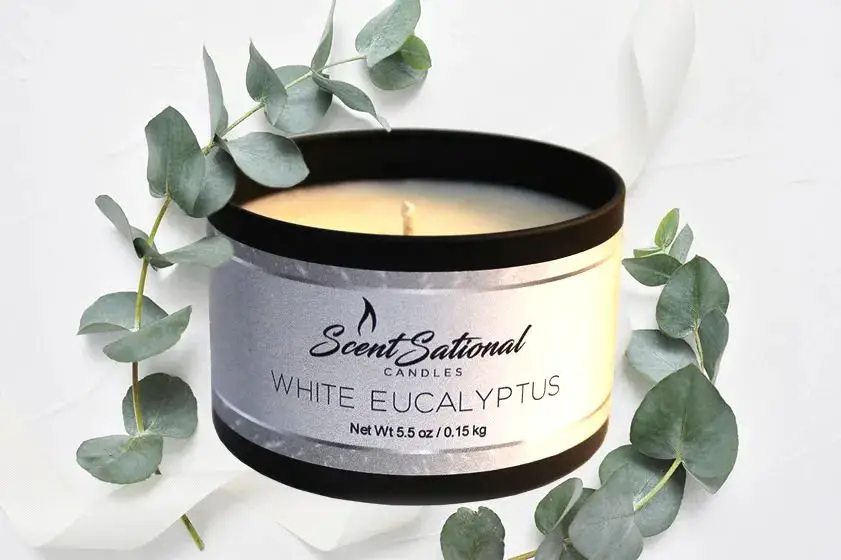
Toxicity concerns – Eucalyptus oil can be toxic to pets, especially cats and dogs. Burning eucalyptus candles can cause respiratory issues in pets. And ingesting the oil or plant matter can be very dangerous. So it’s best to keep eucalyptus candles away from pets (source).
Scientific Research
Several scientific studies have examined the effects and safety of eucalyptus candles. One study published in the journal Pain found that inhaling eucalyptus oil could reduce pain and inflammation in patients who had undergone total knee replacement surgery (https://www.ncbi.nlm.nih.gov/pmc/articles/PMC3703330/). The researchers concluded that eucalyptus oil could be a useful complementary therapy for managing postoperative pain.
Another study published in Molecules in 2021 reviewed evidence on the emerging antiviral properties of eucalyptus oil (https://www.ncbi.nlm.nih.gov/pmc/articles/PMC8706319/). The authors found that eucalyptus oil and its compounds exhibit antiviral activity against a range of viruses and suggested it could have potential therapeutic applications.
Regarding safety, research has examined emissions from scented candles containing essential oils like eucalyptus. Studies found candles produce small amounts of soot and VOCs, indicating ventilation is advisable, but did not identify major health risks (York, 1999; Nematollahi, 2006). Overall the scientific literature shows eucalyptus oil can have benefits, while candles should be used with reasonable ventilation.
Aromatherapy Uses
Eucalyptus essential oil is commonly used in aromatherapy practices. The oil has a distinctive, menthol-like aroma that is believed to have therapeutic effects when inhaled or applied topically.
Some of the purported benefits of using eucalyptus oil in aromatherapy include:
- Relief from respiratory conditions like colds, coughs, asthma and bronchitis. Inhaling eucalyptus oil may help open up airways and allow easier breathing.
- Reduced nasal congestion and sinus pressure. The menthol in eucalyptus oil acts as a decongestant.
- Lessening stress and anxiety. The calming scent of eucalyptus can promote relaxation.
- Pain relief, particularly for headaches, sore muscles and joints. Applying diluted eucalyptus oil can have an analgesic effect.
- Improved mental clarity and focus. The invigorating scent can help boost concentration.
Eucalyptus oil is often added to baths, diffusers, inhalers, massage oils, and topical ointments used for aromatherapy treatments. Proper dilution is important, as undiluted eucalyptus oil can irritate skin. Overall, research is still limited on the efficacy and safety of using eucalyptus oil therapeutically.
Comparisons To Other Candle Scents
Eucalyptus candles have a distinct herbal and medicinal aroma compared to other popular candle scents like lavender, citrus, and vanilla.
Lavender candles tend to have a milder, floral, and soothing fragrance. They are known for their relaxing properties and are often used to aid sleep. In comparison, eucalyptus has a sharper, more invigorating scent profile. While lavender promotes calm, eucalyptus is believed to improve focus and clarity 1.
Citrus candles, with scents like lemon, orange, grapefruit, and lime, have a bright, uplifting aroma. They evoke feelings of energy and cheerfulness. Eucalyptus is not nearly as sweet or zesty as citrus. Its medicinal notes are better suited for purifying the air rather than just providing an enjoyable fragrance.
Compared to sweet gourmand candles like vanilla, eucalyptus has a much more natural, earthy profile. Vanilla is universally enjoyed for its warm, comforting scent. Eucalyptus is less cozy and more invigorating with its camphorous overtones.
The main advantage of eucalyptus over other candle scents is its purported health and respiratory benefits. It adds an element of aromatherapy, whereas scents like lavender and citrus are more fleeting and solely for enjoyment.
Tips For Safe Use
While eucalyptus candles can provide aromatic and therapeutic benefits, it’s important to use them safely. Here are some tips:
- Ensure proper ventilation by keeping windows cracked or burning candles in a well-ventilated room. Never burn candles in an enclosed space (Bath & Body Works).
- Limit burn times to no more than 4 hours at a time and trim wicks to 1⁄4 inch before lighting to avoid excessive smoke (Slow North).
- Keep candles out of reach of children and pets. Never leave burning candles unattended (Graceful Touch).
Following basic safety precautions will allow you to enjoy eucalyptus candles safely.
Popular Brands
When looking for a high-quality eucalyptus scented candle, there are several popular brands to consider:
Yankee Candle – This classic candle brand offers a Eucalyptus Mint candle that reviewers say has an “invigorating” and “fresh” scent. It’s available on Amazon for around $20.
Bath & Body Works – For a candle with relaxing eucalyptus, tea, and sage notes, check out Bath & Body Works’ Eucalyptus Rain 3-Wick Candle. Get it in stores or online for $24.50.
Voluspa – This luxury candle brand makes a Mediterranean Fig and Eucalyptus soy candle. Reviewers describe it as “heavenly” and “clean smelling.” Pick it up at select retailers for $30.
WoodWick – For crackling wooden wicks, try WoodWick’s Eucalyptus Mint candle. Customers say it’s “strong scented” in a “soothing” way. Find it on Amazon for around $27.
When browsing eucalyptus candles from top brands, look for customer reviews, natural ingredients, and reasonable prices. With popular options starting around $20, it’s affordable to try a few favorite scents.
DIY Eucalyptus Candles
Making your own eucalyptus candles at home has several benefits compared to buying pre-made candles. Homemade candles allow you to control the ingredients and customize the scent to your liking. You can also save money by making candles yourself. According to The Homespun Hydrangea, homemade candles only cost around $1-2 each compared to $5-15 for store-bought candles.
To make an essential oil eucalyptus candle, you’ll need soy wax flakes, a candle wick, eucalyptus essential oil, and candle jars or tins. The Homespun Hydrangea recommends using 4-8 drops of eucalyptus oil per 1 cup of soy wax flakes depending on how strong you want the scent. Their recipe suggests:
- 1 cup soy wax flakes
- 6 drops eucalyptus essential oil
- Candle wick
- Glass jar or tin
Melt the wax either in a slow cooker or double boiler. Once melted, add the essential oil drops and stir to combine. Carefully pour the scented wax into your container holding the wick in place. Allow to fully cool and harden before lighting. For more details and tips, refer to the step-by-step eucalyptus candle tutorial at The Homespun Hydrangea.
The Bottom Line
When used safely and in moderation, eucalyptus candles can provide beneficial effects for health and wellbeing. The aromatic compounds in eucalyptus oil, especially 1,8-cineole, have been shown to help relieve congestion, ease coughs, and promote relaxation. However, eucalyptus oil can also irritate lungs and skin for some people, so it’s important not to overdo it with eucalyptus candles. Burn them occasionally rather than constantly, keep them away from faces, and ensure proper ventilation. Ultimately, eucalyptus candles can be a helpful complementary therapy, but they should not replace medical treatment if you have a serious respiratory condition.
If you enjoy the refreshing, invigorating scent of eucalyptus, an occasional eucalyptus candle could offer therapeutic effects. But it’s wise to listen to your body and discontinue use if any concerning reactions occur. Be selective about candle quality and safety, never leave burning candles unattended, and consider combining with other aromatherapy practices for enhanced benefits. When used carefully, eucalyptus candles can be a positive addition to a healthy lifestyle.

